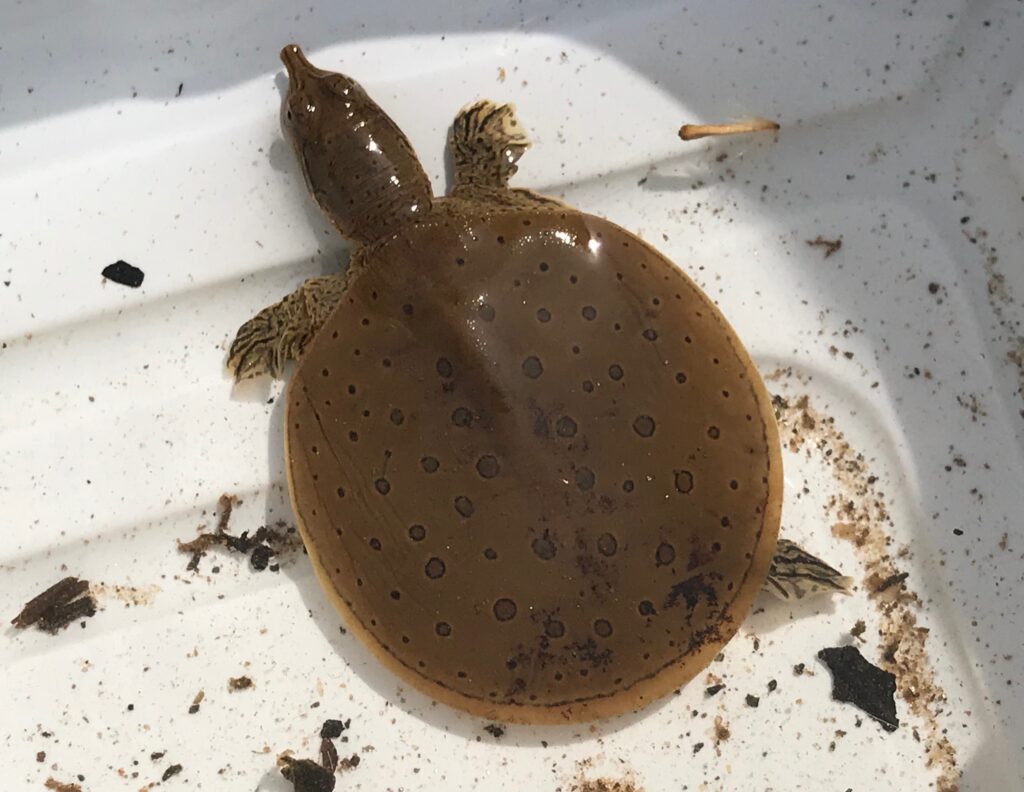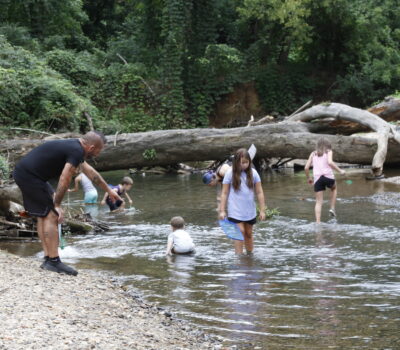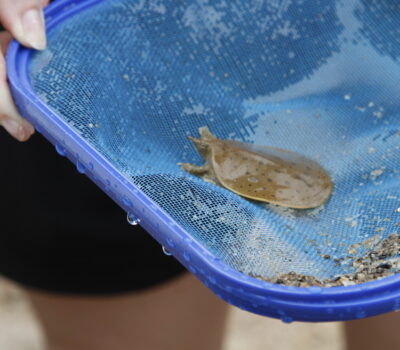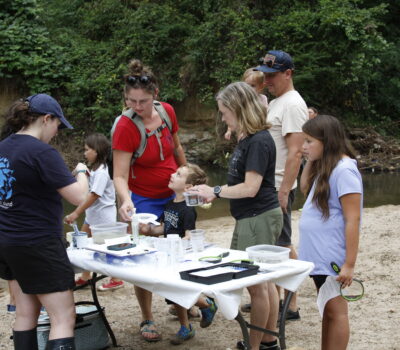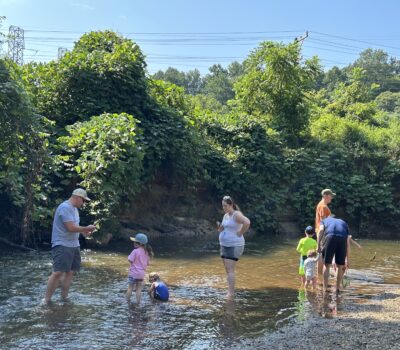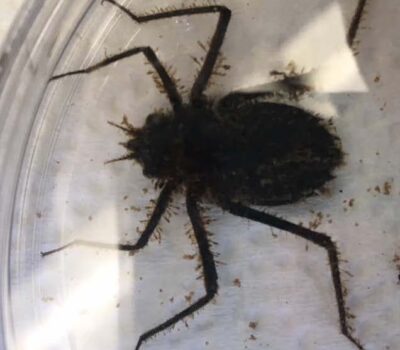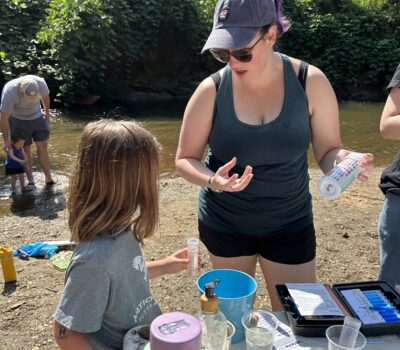Ask a Naturalist: What Lives in Salem Creek?
Salem Creek is truly an urban creek, it transverses different areas of the City of Winston Salem including Marketplace Mall, through Washington Park and the Gateway Nature Preserve, under Broad Street, across Main Street and through Happy Hill and Reynolds parks to Salem Lake Park.
Salem Creek is located within the Yadkin-Pee Dee River Basin in the Piedmont and it is composed of Class C waters. The Salem Creek Watershed is located entirely within Forsyth County and the the majority within the municipal limits of WS. Class C waters are protected for secondary recreation, fishing, wildlife, fish consumption, aquatic life propagation, survival and maintenance of biological integrity, and agriculture. Secondary recreation activities include wading and boating. Most streams in Forsyth County are Class C. These waters are routinely sampled to monitor stream health and water quality.
Small streams, like Salem Creek, play a critical role in the overall health of the bodies of water they flow into. Because a larger portion of their waters are exposed to air, sub watersheds provide aeration and biological benefits to small organisms (macroinvertebrates). In addition, fish living in these bodies of water feed on organic waste in these oxygen rich environments.
Protecting fish and macroinvertebrates that live at the bottom of bodies of water such as Salem Creek is important and helps to reduce pollution, providing benefits to water treatment costs and the stream’s aesthetic qualities long term. Vegetation along streams provide buffers that filter sediment, nutrients, and other pollutants during storm events.
Did you know Gateway Nature Preserve is an iNaturalist Hotspot? You can view species that have been observed by visitors here.
If you visit the preserve and have the iNaturalist app on your device, you can snap a photo through the app and it will identify the species and also upload it to the database.
Some species that have been identified with the app have been:
- Little Black Caddisflies
- Typical Crane Flies
- Wolf Dusky Salamander
- Arthropods
- Mayflies
- Asian Clams
- Dragon hunter
- Northern Hemisphere Crayfish
- Eastern Dobson Fly
Other wildlife that can be found at Salem Creek includes:
- Common: Flathead catfish, Common carp, and Channel catfish
- Various Bass species inhabit Forsyth County’s waterways.
- Largemouth bass and White perch favor warm, muddy waters.
- Roanoke, rock, spotted, redeye, and smallmouth bass prefer cooler streams with rocky bottoms.
- Frogs: Forsyth County is home to various frog species, which are important indicators of environmental health.
- Other amphibians: Species like the Eastern spiny softshell and Stripe-necked musk turtle are also found in the state’s protected riparian zones.
- Mammals: Muskrats, beavers, river otters, and certain bats like the Eastern pipistrelle utilize aquatic habitats in Forsyth County.
- Birds: Streams and riparian zones provide habitat for birds such as the Louisiana waterthrush, waterfowl, wading birds, and shorebirds.
- Reptiles: Several reptile species, including turtles, frogs, and salamanders, depend on streams for habitat.
- Insects: The Eastern Tiger Swallowtail and Asian Lady Beetle are also found.
- Plants: Riparian zones support various plant communities that are vital for wildlife. Healthy, native plants along streambanks are essential for water quality and wildlife habitat.
Salem Creek serves multiple ecological and recreation purposes. It is important to preserve the Creek and surrounding areas, not only so that we can enjoy recreational activities like fishing and wading but so that the wildlife that depends on it can thrive. At Gateway Nature Preserve we are committed to preserving habitat for wildlife and for the community to enjoy. Join us for our next free family friendly event, Salem Creek Stomp, we will be collaborating with Yadkin River Keeper to do some exploration of the creek. Find more information on our website’s event page.
Resources:
https://www.cityofws.org/1021/Salem-Creek-Greenway
https://www.co.forsyth.nc.us/Documents/Water_Quality.pdf
www.NCWildlife.gov
